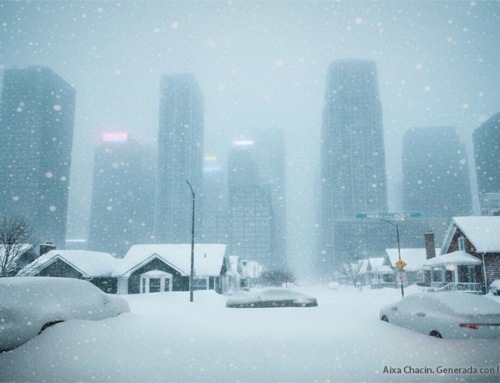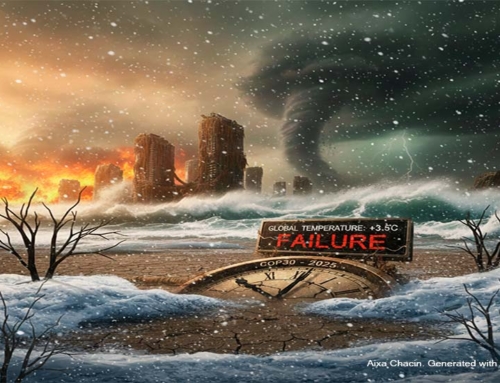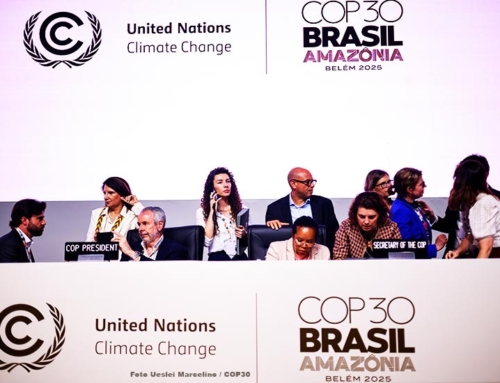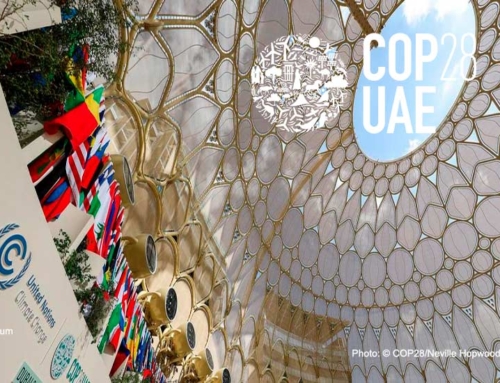It’s the end of the fiftys, between fifth and sixth grade, times of great technological progress, times of the launching of the Sputnik, the first artificial satelite, or Laika, the first little bitch to orbit around the earth. Also the era of Professor Jaques Piccard and his Bathyscaphe Trieste, that strange-looking submersible artifact that for the first time broke the barrier of the 5000 meters of depth in the planet’s oceans. This Professor, second generation of a family of explorers and inventors, born in Brussels, was more oftenly found in collectible cards kids use to play with and win from each other, than in books. Most of the children use to imagine what the year 2000 going to be like was. That magical moment, that goal that by then was so far away, that fantastic división that would end our 20th century and drive us into the 21st, so much was expected from this new era.
There use to be a very broad spectrum of “hypothesis” sprouting from the fertile minds of children from that time, such as Angel, Ramiro, quiet Alfonso and many other eleven and twelve years old. It was frequent to listen about underwater cities that could only be reached in little submarines such as Piccard’s, or about how cars would fly between the big cities’ skyscrapers performing the most dangerous and thrilling maneuvers. How about space cities, lodged beneath inmense plastic capsules, were O2 can be injected into the environment and protection from frequent meteor showers is provided? We could also picture people with jet-packs cruising through urban skies, or even tridimensional TV that could reproduce odors, from the most revolting stenches to delighting perfumes, depending on the scene that is being shown on the screen.
Having reached the year 2000, we realized that we were wrong about most of our predictions: after entering the 21st century, we now smile when we notice that we really aren’t living underwater or in space, nor we are cruising the skies, Michael Jackson style, with jet-packs or flying in-between skyscrapers with our cars. We only got the 3D TV right, because the odors are still just in our imagination.
The only thing that no one foresaw, not in the 50’s, 60’s, or even the 70’s, was that in our near future would exist, as the most common of things, a PC in every household. A personal computer that would allow anyone to do pretty much anything. The first PC was marketed in the early 80’s, and barely a few years before that, no one thought that such invention could get to even see the day of light, let alone to become something humans would depend on for the rest of times. What no one even dreamed of dreaming about was Internet, that Pandora’s box released just two decades ago, capable of containing everything good and bad humanity has come up with. From stone utensils of 3 million years of age, rock paintings, the pyramids and greek filosophy, to nanotechnology, nowadays stem cells, or the numerous social networks through which millions of people communicate constantly, the maps of the Earth or all the Post-Gutenberg literature. All of this together, blended, mixed, packed, compressed, maybe in one or several interconected recipients (who knows if in some hypermemory, The Quijote is stacked below a column of the Parthenon or next to a post on a gourmet site?) from which everything jumps from one side to another, at the speed of light, in this thing we’ve given the name of “web”.
If computers and the internet were already hard to predict, foretelling the advent of the popular and effective Google a few years before it’s launching, is something even minds as prodigious as Leonardo Da Vinci’s or creative as Jules Verne’s, would have found themselves uncapable of. Who, in the 80’s or even 90’s, could have imagined something as indispensable, useful and extraordinary as the famous search engine some of us use several times each hour? Although it is not created at the time, the “Google” domain is registered as early as September 15th1997, therefore, it can be considered as one of those miracles of the year 2000 that we were not able to predict. Without Google it would be impossible to disentangle and find just what we need, whenever we want, from that conglomerate of information and knowledge, reduced in that Pandora’s box known as the internet. The catch with Google, that incredible “finder”, is it’s capability to find accurately and in hundredths of seconds, anything we could ever want or need to know. It is impossible for humanity to have imagined, guessed or dreamed about the arrival of a tool as amazing and essential as or everyday magic wand. No one, never, anywhere, with the help of any institution or Oracle of Delphi, could have forseen such invention.
With the help of Google, we were able to extract from the Pandora’s box, one by one all the news and events that were being generated, minute by minute, about the Protocol of Kyoto’s faith, in the heart of the conference on climate change, held in the Southafrican port city of Durban, which ended just a few weeks ago. It was through this way that we were able to write and publish instantly, a series of articles based on what was happening during the 15 days the summit lasted. We finally got the infamous news about the Protocol’s death sentence, something that occured in a very predictable meeting in which the greatest polluters in the planet decided; claiming one excuse or another, to discontinue the only instrument humanity had to battle global warming. However, on top of everything, and having to overlook the name of this blog, we remain optimistic and think that will be all of these new technology what will help us return to a safer path leading to new commitments in climate change matter. Perhaps it will be through social networks that people will take charge of global warming, something that no one was able to foretell in the 50’s or 60’s – not global warming or social networks-, as well as the thinning of our vital ozone layer, to force world leaders to make all the necessary decisions to save this planet from a global catastrophe. On the brigth side, new inventions will come, maybe even more amazing and spectacular than the recent ones.
Can you imagine how the world is going to be in 15 or 20 years from now? If the answer is yes, send us your predictions. Let’s play, are you up for the challenge?
Sandor Alejandro Gerendas-Kiss







Leave A Comment